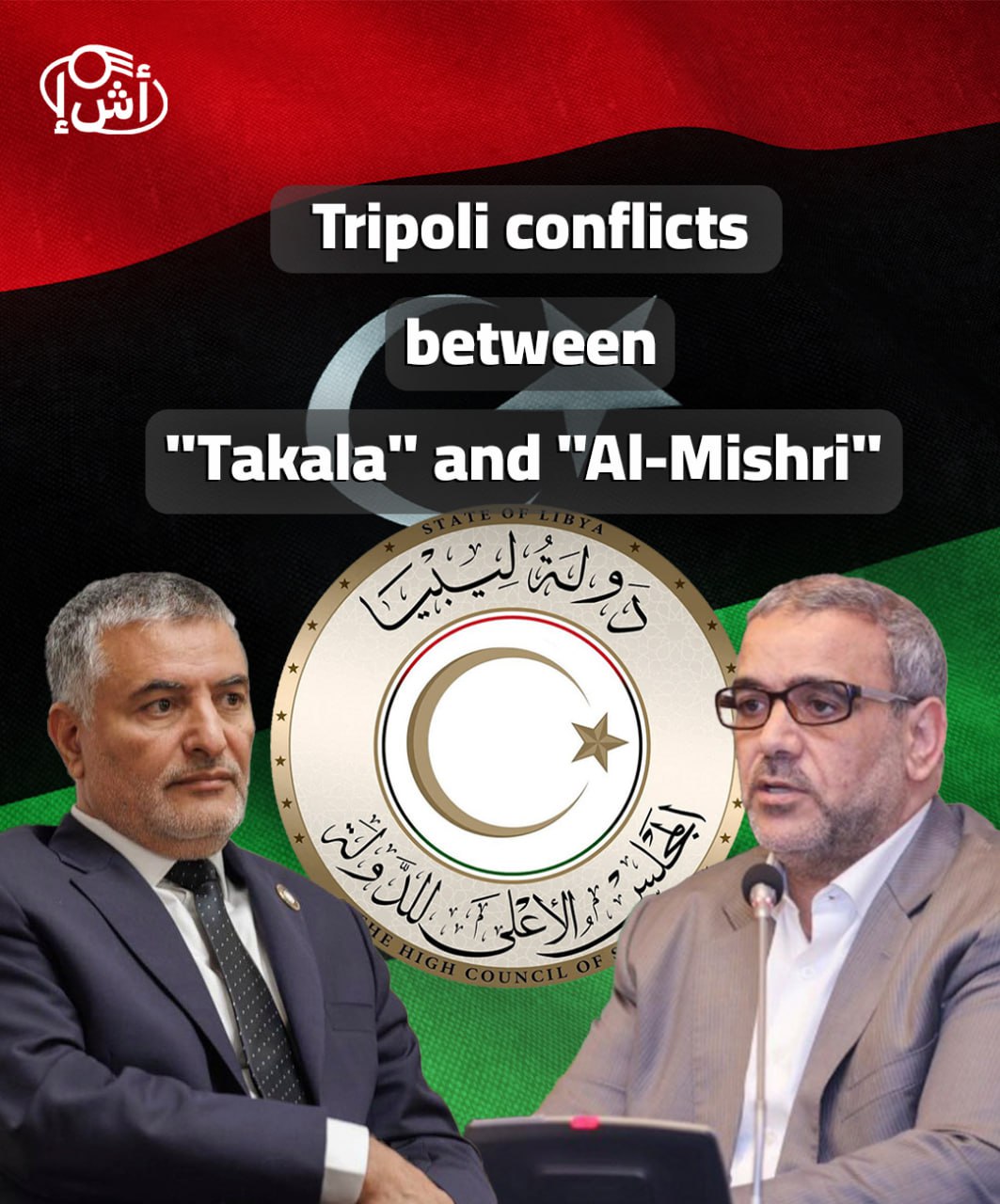The election of the President of the High Council of State in Libya presented a picture of the nature of the division in the Libyan political scene. Although the results did not bear any new information, they painted a bleak picture of the political structure in western Libya.
The elections, which ended with the victory of Khaled Al-Mishri, the former President of the Council, by one vote over his competitor Takala, revealed a political context that reflects the sharp contradictions in western Libya. Khaled Al-Mishri was elected for the sixth time, and today he regained his position amidst a conflict within the Council, which prompted Takala to stop the session and refer the case to the judiciary.
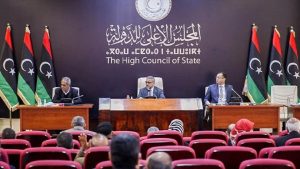
Although the conflicts within the council are not new, they are coming today against political backgrounds related to “Al-Mishri”, who lost his representation of the religious movement. The positions that emerged were ultimately part of the dead-end political horizon within the political environment in Tripoli. The Supreme Council of State, despite being “advisory”, has become an effective factor in all the special balances in western Libya.
In the general political scene, the elections of the Supreme Council of State have ignited tensions in Libya, with the outbreak of a new crisis related to the position of the Muslim Brotherhood on the elections for the presidency of the Supreme Council of State.
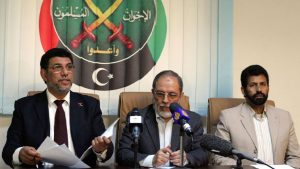
Despite the differences between Al-Mishri and the group, the religious movement’s support for him has not changed, and talk is circulating in Tripoli about a scenario agreed upon between Takala and some political circles to suspend the session and refer the matter to the judiciary if Al-Mishri refuses to re-vote.
Al-Mishri confirms his legitimacy as head of the council, while talk of buying votes to ensure Takala’s victory if the court decides to re-vote is circulating within political circles. Although the general trends in western Libya will not change no matter who heads the Supreme Council of State, the nature of political competition remains, especially with Al-Mishri’s deep roots with the Brotherhood.
This crisis comes at a critical time for Libya, especially with the increasing movements towards finding a political way out to hold elections, which prompted council member Amina Matar to warn that re-electing would be a “huge disaster”, as she stressed that the final decision must be in accordance with the internal regulations and the consensus that was reached.
This controversy over the head of the council is not far from the political path of “Khaled Al-Mishri”, who announced in 2019 his official withdrawal from the Muslim Brotherhood, although his history with the group goes back many years.
Despite Al-Mishri’s abandonment of his official affiliation with the group, he has maintained the general political direction that links him with the group and their allies such as Turkey and Qatar, but the political calculations in western Libya remain concerned about two matters:
- The first is the ability of the expired government of Abdul Hamid Dbeibeh to maintain its conditions in any future political solution. Whether Al-Mishri or Takla is elected, this issue will not change because the two candidates are considered part of the general political formation of all political formations in Tripoli, and the only difference seems to be in their political ambitions.
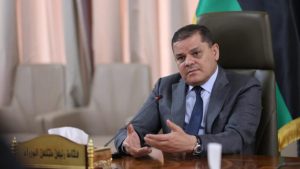
As for the Dbeibeh government, it does not want a strong competitor like Al-Mishri, even though he is part of its political network. At the same time, it seeks to take into account the broad religious movement that it considers essential. The bloc of special interests in Tripoli is trying to impose its conditions even if the presence of any president within the Supreme Council of State does not change the political equation.
- The second matter is related to the complexity of the alliances between the forces present in western Libya. The issue is not related to Al-Mishri or Takala being part of the political network linked to Western interests in Libya in general, but also to the ability to share those interests in which Al-Mishri appears stronger in his political flexibility and foreign relations.
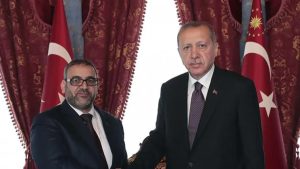
What happened during the past weeks was decisive in the matter of the tendency towards “Takala” which turned against the Cairo agreements, and this matter led to the obstruction of political efforts towards holding elections, and the scene is being completed today through the new political complexity within the Supreme Council of State.
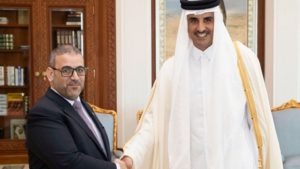
The strong relationship between Turkey and Qatar and Al-Mishri still exists despite the tendency of some officials in both countries to support Takala, while the UAE and Saudi Arabia criticize his performance, which indicates specific regional trends that will certainly affect the path that these elections will take after the judiciary decides their results.
The elections of the Supreme Council of State showed that the challenges of consensus are not only related to the issue of presidential and legislative elections, as the lack of consensus within the Supreme Council of State constitutes the deep crisis in western Libya in particular, and not the personality of the council president.
Overcoming internal divisions begins in Tripoli, which is witnessing a contradictory political formation that does not carry with it a political vision capable of at least reducing tension within its own political circles first; before searching for general political solutions that bring Libyans together on a roadmap to get the country out of its crisis.
By Mazen Bilal
The Libyan government denies charges of interference in the Sudanese conflict
